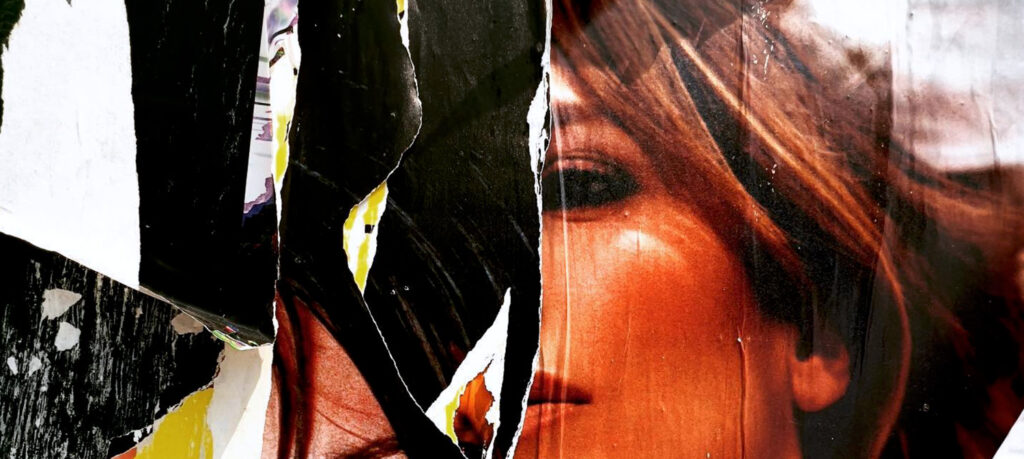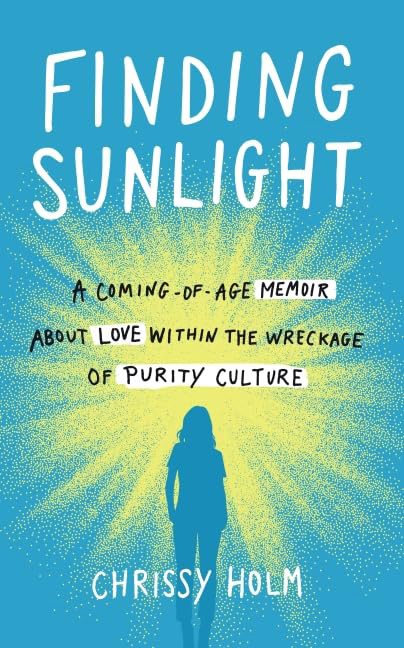
Estimated reading time: 5 minutes
A BiSexual woman’s struggle with the purity culture of her youth and her eventual healing from the ensuing confusion and shame
—
A dark cloud of shame hovered over me for many years. As thunder roared and rain poured down, I imagined God was angry with me. He threw things in Heaven and cried for everything I did wrong. Because I lost my virginity at fifteen.
When I was eight, I was homeschooled at my church, which was influenced by evangelical theology and rules. Share the Word of God and follow Jesus Christ. Respect your father on Earth and your Father in Heaven. No premarital sex. Only date someone with the intention of marriage. And the list goes on.
I also attended a purity conference with my mom and sisters in those younger years. I had a duty as a young Christian girl to uphold the Word of God, refrain from sex until marriage, and prevent myself from being a temptation to men.
Fear crashed into my fifteen-year-old body that felt like lightning striking in the sky.
What was supposed to be a deeper connection to my boyfriend ended up with me having a constant knot in my stomach and a thickness in my throat. I had a shortness of breath each time I spoke, and thoughts raced in my head: I’m going to Hell. I’m pregnant. I can never undo this. I will never have this connection with my husband. It’s all my fault.
These thoughts were only exacerbated a few months later as the eight-month relationship ended. I wouldn’t marry the person I lost my virginity to, and I was bound for a life full of sin.
A LIFE OF SIN
When I was seven, I played truth or dare with my friend, who was a girl. Compelled by a dare, we undressed together under the covers. But this was not right—love is between a man and a woman, and God condemned homosexuality. I swallowed the hard lump in my throat and the desire to explore my sexual identity. But I had to obey Jesus, God, and my father. The dark cloud of fear caused me to bury this secret for more than twenty years.
At sixteen, I stopped attending church. After my parents’ divorce, no one from the church community reached out to offer comfort or support. I felt alienated and lost.
Though guilt diffused throughout my body, for the first time in my life, I wanted to step out and understand what I truly believed.
At eighteen, I kissed my close friend, who was a girl, and it whipped me like a giant wind gust. I wanted to be with her but couldn’t because I still had to bury my secret. I silenced myself, not fully understanding my desires, and not knowing where to go or who to turn to for support. I felt alone, helpless, and guilty about my curiosity. The depression and mental health struggles thickened like dark clouds in a storm.
Through each relationship or sexual interaction, I still felt as if God was crying from above, ashamed of everything I was doing: not attending church, and not honoring Him. I had not fully understood the gravity of all the lessons I was taught and how it held a heaviness in my body. But soon, I was ready for some sunlight.
THE PATH TO HEALING
In college, I learned more about gender, sexuality, and sex education. We explored topics of marriage, family, and cohabitation. As each week passed by and I reevaluated my thinking, the cloud of shame started to clear and dissipate. I wasn’t evil or sinful—exploring sex and sexuality was a normal part of growing up—something I didn’t need to feel guilty about. I practiced self-compassion with myself and rather than repeating racing thoughts, I stayed present and opened my curiosity to trying new things.
Those knots in my stomach slowly started to unravel, and I began to catch my breath. With the freedom to choose new experiences, I found healing through habits like yoga, hiking, and writing, with my writing eventually turning into a memoir: Finding Sunlight.
When my negative thoughts resurfaced several years after college, therapy and support groups — such as sexual health educator Erica Smith’s class, So You Think You’re LGBTQ+? — helped lessen the feelings of shame and guilt again. I wasn’t just a vessel for carrying babies and pleasing my husband. I could be more — I was more. These were steps toward liberation.
With each year that passes by, I spend time exploring myself and discovering how to be more self-compassionate. I know I can reach out to friends who understand, and I choose to look at purity culture from a larger cultural perspective. While I’ll always be healing, growing, and uncovering new parts of me, I now know what it takes to stand tall, return to myself, and weather life’s storms.
You may also enjoy reading Releasing Shame to Claim Your Self-Worth, by Emily Maddil.
